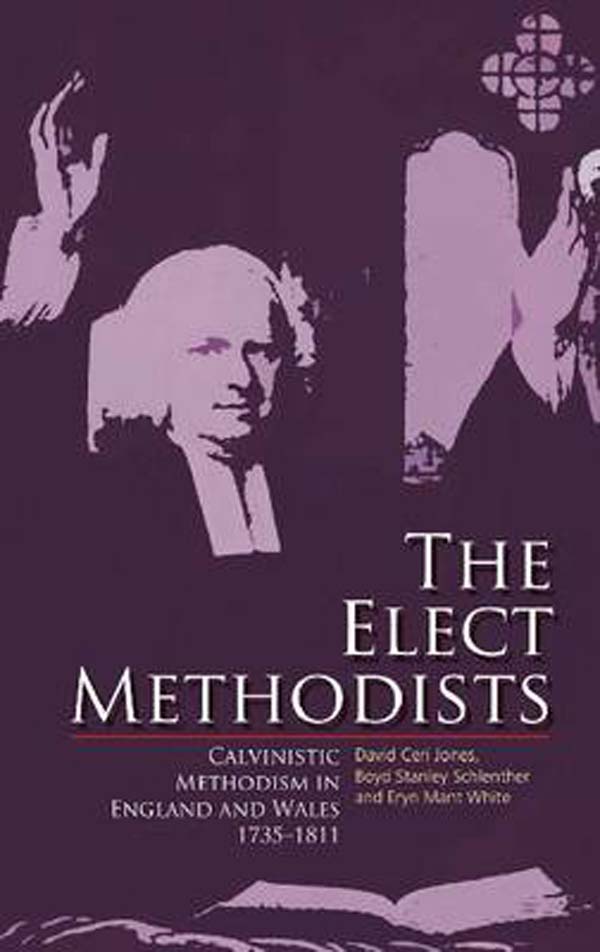The Elect Methodists
Calvinistic Methodism in England and Wales, 1735-1811
Author(s) David Jones,Eryn M. White,Boyd Schlenther
Language: English
Genre(s): Religion
- December 2011 · 307 pages ·216x138mm
- · Hardback - 9780708325018
- · eBook - pdf - 9780708325025
- · eBook - epub - 9781783165056
- · Paperback - 9781783169832
The Elect Methodists is the first full-length academic study of Calvinistic Methodism, a movement that emerged in the eighteenth century as an alternative to the better known Wesleyan grouping. While the branch of Methodism led by John Wesley has received significant historical attention, Calvinistic Methodism, especially in England, has not. The book charts the sources of the eighteenth-century Methodist revival in the context of Protestant evangelicalism emerging in continental Europe and colonial North America, and then proceeds to follow the fortunes in both England and Wales of the Calvinistic branch, to the establishing of formal denominations in the late eighteenth and early nineteenth centuries.
"This much-needed volume opens up the history of eighteenth-century Calvinistic Methodism as a single narrative embracing both England and Wales. It offers superb treatment of the larger-than-life individuals who made this Calvinistic movement nearly the equal of its Wesleyan counterpart - including Griffith Jones, Daniel Rowland, and Howel Harris (Wales), the Countess of Huntington and Thomas Haweis (England), and George Whitefield (everywhere). The book also succeeds in explaining why Calvinistic Methodism faded in England while becoming a permanent part of the Welsh religious landscape. This is an important history very well told."
- Mark A. Noll, Francis A. McAnaney Professor of History at the University of Notre Dame, is the author of "The Rise of Evangelicalism: The Age of Edwards, Whitefield and the Wesleys"
‘This sure-footed volume is likely to become the standard introductory text for all students of early Methodism in its Calvinistic clothing.’
– Andrew Atherstone, Journal of Ecclesiastical History
‘Because of The Elect Methodists, Calvinistic Methodism will be better represented both in Methodist bibliography and in a richer academic conversation.’
– Charles I. Wallace, Church History
‘The Elect Methodists has moved scholarship on the evangelical revival forward by bringing together the interconnected history of early Welsh and English Calvinistic Methodism. The three authors have provided a solid model of collaborative historical writing – indeed, the cleverly-titled book is melded together seamlessly so that it reads like a single author volume.’
– Geordan Hammond, Wesley and Methodist Studies
1. 'A sweet prospect' for the gospel: the origins of Calvinistic Methodism, 1735 1738 2. 'A great pouring out of the Spirit': the forging of a movement, 1739 1740 3. An 'outward settled agreement': shaping a structure and a spirituality, 1741 1743 4. From high hopes to 'miserable divisions': the consolidation and splintering of Calvinistic Methodism, 1744 1750 5. 'A leader is wanting': lean years in Wales, 1750 1762, developing years in England, 1750 1765 6. 'I will once more shake the heavens': a new revival in Wales, 1762 1779 7. 'You are only going to a few simple souls': new English Calvinistic groupings, at mid-century 8. 'My Lady's society': the birth and growth of the Countess of Huntingdon's Connexion, 1770 1791 9. 'The Lord's gift to the north': the spread of the movement throughout Wales, 1780 1793 10. 'A smooth and satisfactory order': towards a new denomination for Wales, and decline in England, 1791-1811


